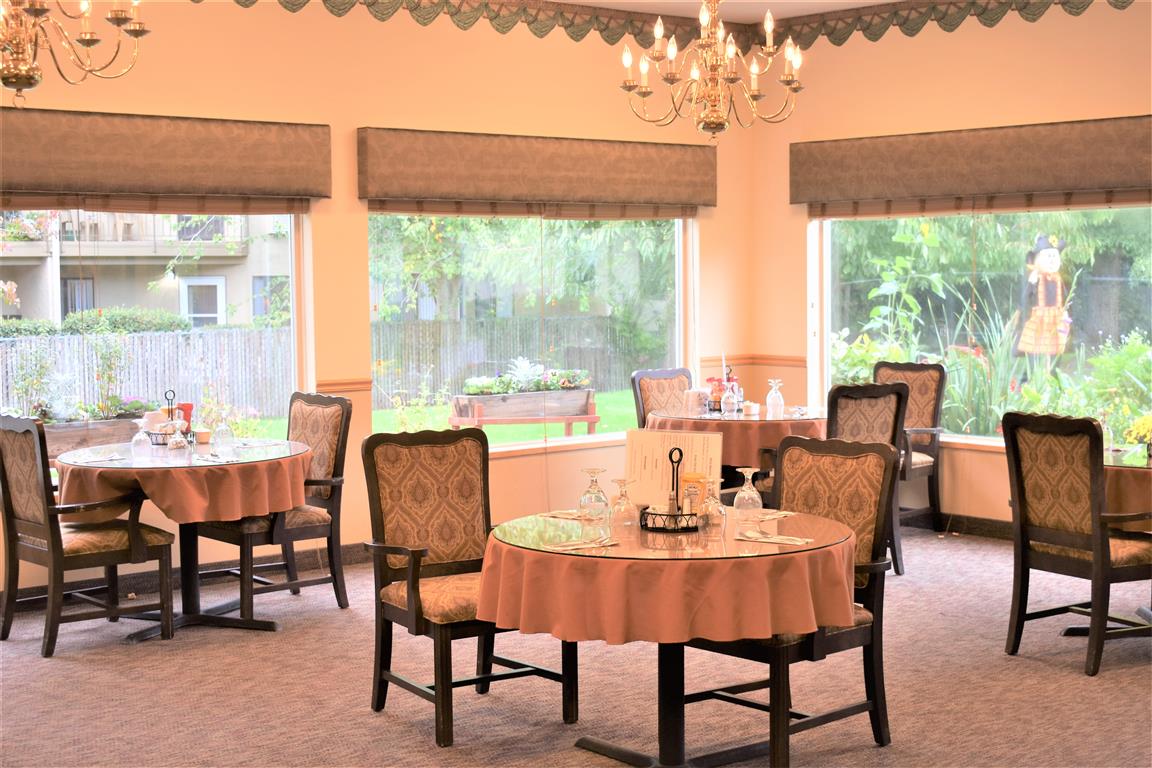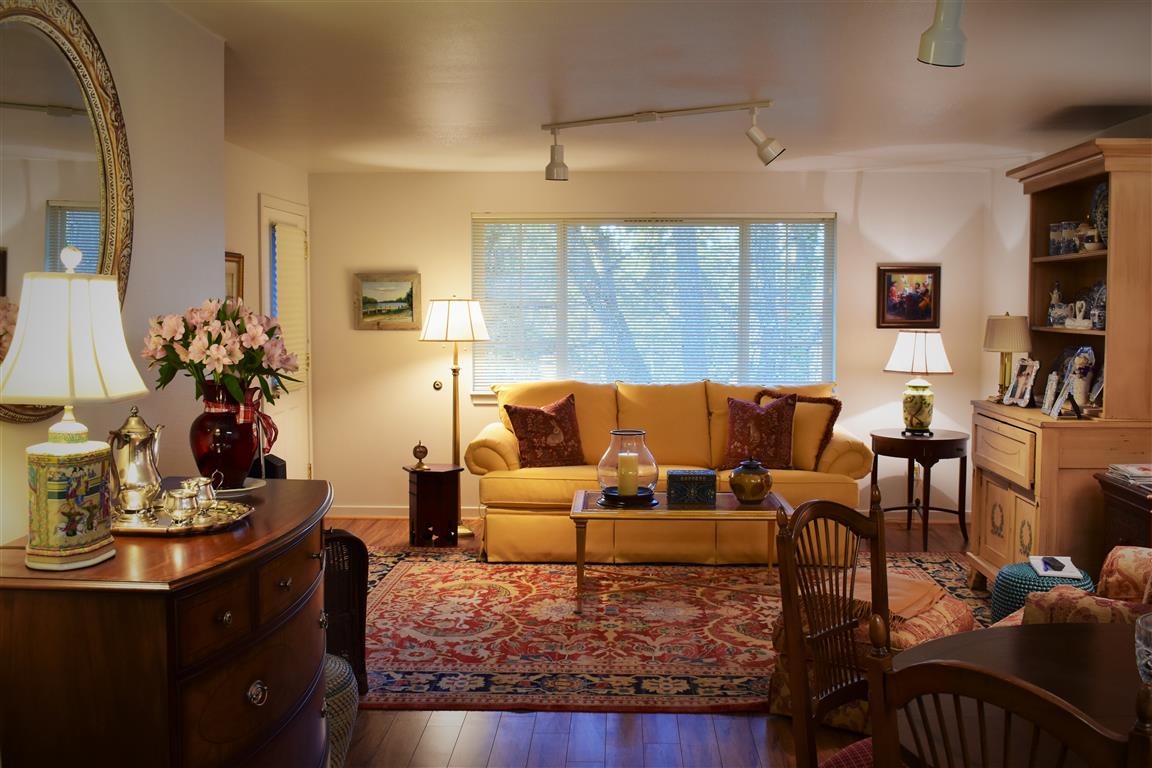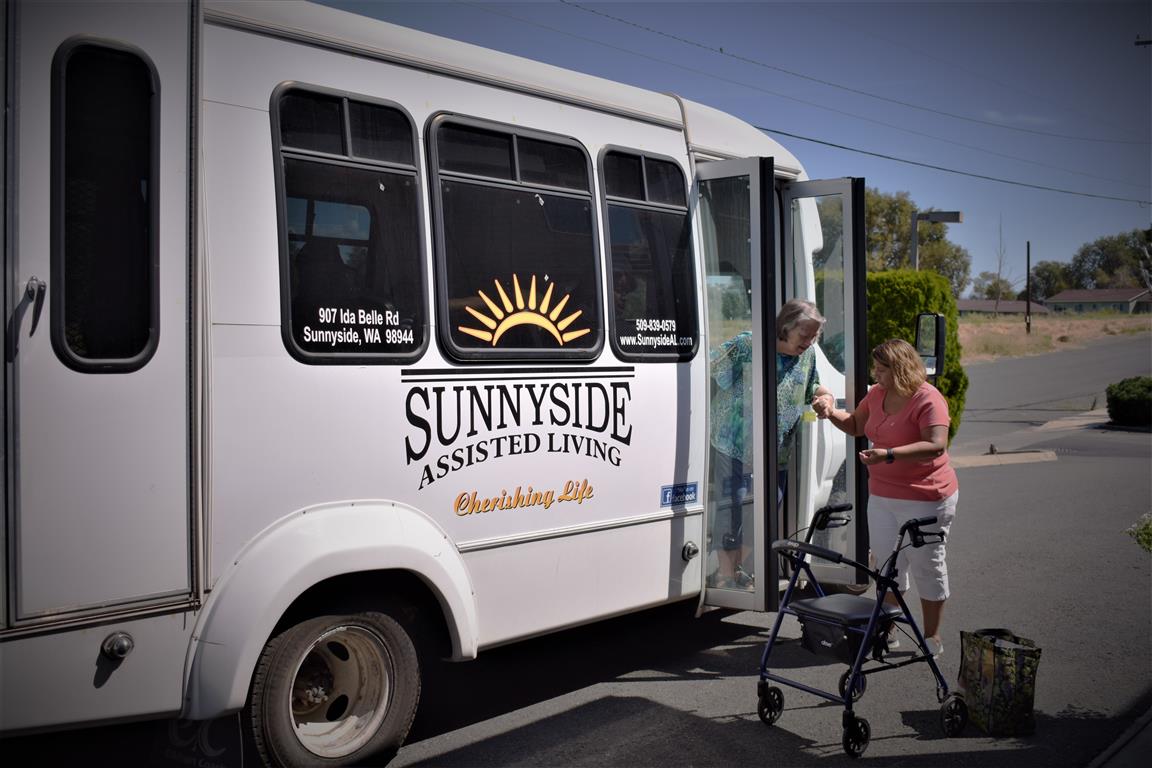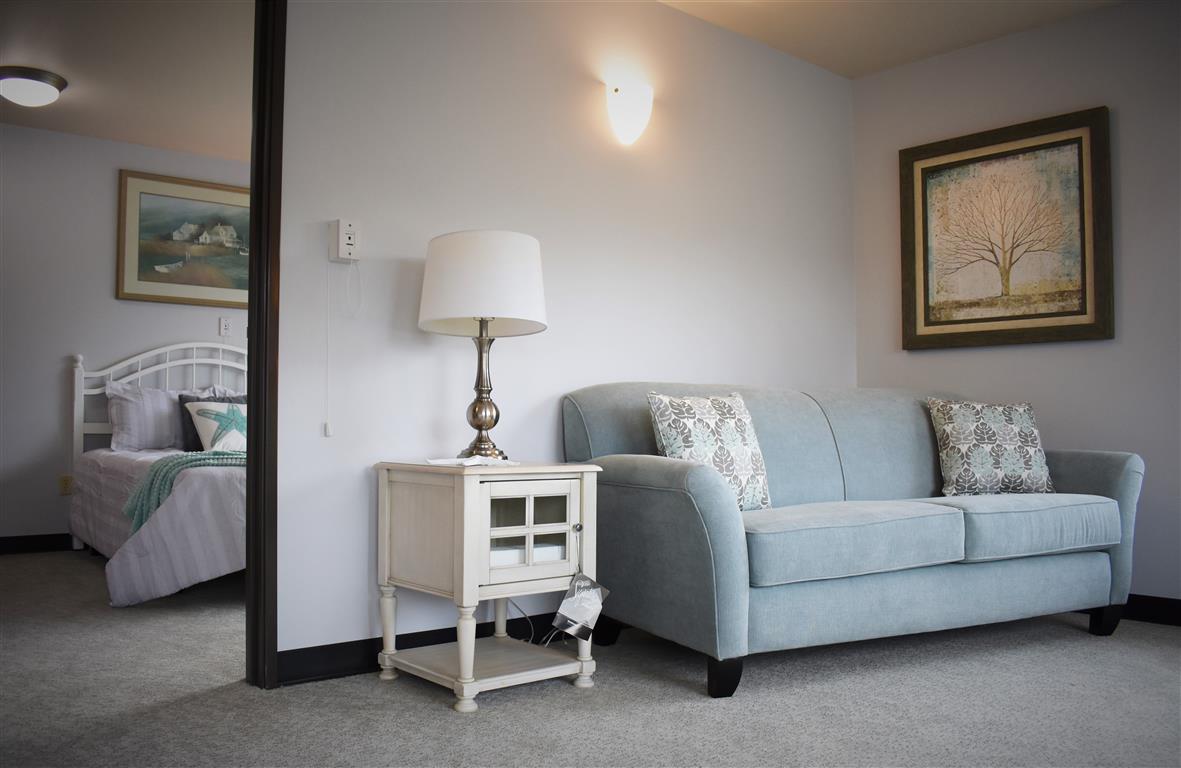The choice between moving to Assisted Living or hiring in-home care can be a difficult one. Or in some cases, you already have in-home care, but it is not enough hours. “Aging in place” happens wherever home is, and the safest option just might be Assisted Living. When helping a loved one decide where to live, here are 8 things you should consider.
Are they (and you) able to manage their medications?
Are you worried about your loved one taking the right medications at the right time? When you refill their pill box each week, are you finding “forgotten” medications? Do you end up scrambling to get refills each month?
Is meal preparation becoming problematic?
Good nutrition starts at the grocery store. Are they able to shop or have groceries delivered? Unsteady hands can make chopping and even using the stove difficult and unsafe. Of course, there are programs like Meals and Wheels, but eating alone day after day is lonely.

The restaurant-style Dining Room at Summit Place Assisted Living (Bellingham, WA)
How safe is their home?
Everyone wants to be safe in their home, but stairs in a multi-level home can present a challenge. Other concerns are dimly lit hallways and rooms that are difficult to navigate with a walker. How much would it cost to renovate and update the home to make it a safer environment? Emergency response systems can help people maintain their independence, but that pendant or bracelet does no good on their nightstand. Are they willing and able to use such a system?

An independent living cottage at Fox Hollow Senior Living (Eugene, OR)
Are personal cares attended to?
A fear of falling can prevent people from showering and bathing like they normally would. This fear is not unfounded, as 80% of falls happen in the bathroom. The bathrooms in most private homes were not designed with fall prevention in mind. A lack of grab bars and a high bathtub are barriers to personal hygiene. When people are unable to look and feel their best, emotional health suffers.
Are they able to get where they need to go?
Should they still be driving? If not, do they have access to reliable public transportation or a cab service? How easy is it to get in and out of the house? Signs that your loved one has barriers to transportation include missed doctor appointments, not being able to go to social outings, and running out of food and other household necessities.

A Sunnyside Assisted Living resident returning from an outing in the facility van (Sunnyside, WA)
Are they lonely?
Living at home can be isolating. Seniors may crave time with people their own age but lack the ability to get where they want to go. They may also worry about how accessible a building is and if there are bathrooms nearby. And one study showed that 50% of people who fear they might fall will limit their social activities, which in turn may lead to depression.
How clean is their house?
Everyone has their own standards for housekeeping, but there are some things that are signs of needing help. Piles of papers or other items on the floor are a fall hazard. Food left out is a magnet for insects and rodents.

One-bedroom apartment at Spruce Point Assisted Living (Florence, OR)
Are they managing their own finances?
Living in a private home can mean lots of bills. Are utilities being shut off because mail goes unopened? Is it becoming a challenge for family caregivers to know what was paid and when? Is your loved one vulnerable to “con men” masquerading as contractors, such as a roofing company who wants a deposit in full before they begin work?
The right Assisted Living community will eliminate these worries. You and your loved one can focus on spending quality time together instead of cleaning, doing laundry, or trying to balance their checkbook. And let’s not forget that in an Assisted Living setting, a card game or coffee time with friends is just steps away from their front door.
To learn more about Nightingale Healthcare’s Assisted Living communities in Washington and Oregon, we encourage you to visit www.nightingaleliving.com or call 360-656-6609.
